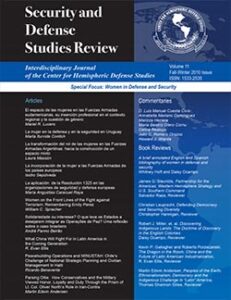The types of violent conflicts occurring more frequently today encompass solutions from different areas, making participation in peacebuilding from a broad range of backgrounds and specializations essential to its success. In order to reinforce the internal structure of fragile or destroyed states, it is necessary to achieve a stronger integration and coordination not only among the States but also among the international organizations. Peacekeeping must become Peacebuilding to accomplish this end. Integral security has long been a basic concept for all the participating countries. International experience demonstrates that States who cooperate in a specific country for humanitarian reasons and under UN mandate should afterwards complement the peace operations carried out by military forces with actions designed to settle that country's basic needs. As a concept, peace operations is broader, representing much more than sending troops. Along with the mission of enforcing peace and security, it also has a wider and more integral multidisciplinary character, throwing down a gauntlet to both civilian and military people to act jointly and in coordination in various multiple and complex tasks. This is necessary so that the new operations achieve their final goal of securing peace and socio economic development. In this article the case of Chile's evolution is presented inside the peace operations under the UN mandate. The future participation of civilians as a whole, altogether with military and police, is presented as another topic of the Foreign Policy under the framework of the Chilean International Cooperation Agenda for Haiti. Also, the Parliament's involvement in the generation of national strategic planning capabilities for peacebuilding is highlighted.

